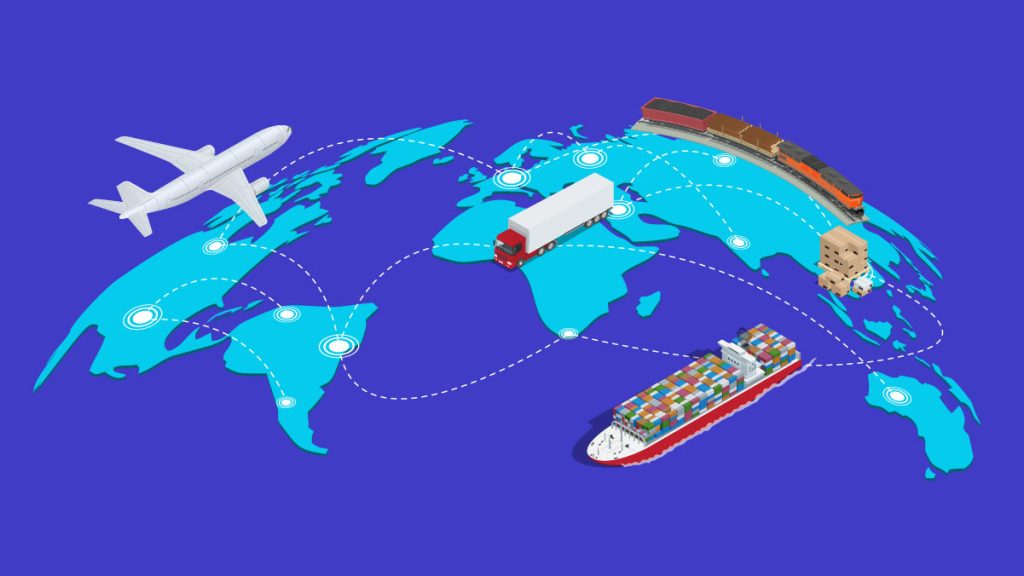
Sustainable food supply chains are necessary for maintaining global social stability. Meeting the needs of an ever-expanding population is no easy task.
In order to accomplish this, the food business must handle a number of intricate problems, including greenhouse gas emissions and deforestation, worker safety and fair pay, as well as consumer nutrition and health.
Recent disruptions to the interdependent world food system serve as a stark reminder of how thin our safety net is. These include, among others, COVID-19, the situation in Ukraine, climate change, and a looming global recession.
In light of these underlying threats, how can global food supply chains utilize technology to strengthen themselves and improve efficiency?
What are Food Supply Chains?
Food supply chains refer to the systems and processes that the food from the farms and factories to your dining table.
The processes include:
- Production
- Processing
- Distribution
- Consumption
- Disposal
Developments in Food Industry Sustainability
Traceability
Today’s consumers are growing more aware of both what is good for them personally and what is good for the earth as a whole. Therefore, product traceability is essential for businesses to understand the origin of the food as well as the environmental and social consequences.
According to Matias Muchnick, CEO, and founder of NotCo, businesses locked in the notion that they decide what customers want will not survive in the era of conscious consumers. Instead of the other way around, customers are in the driver’s seat and creating the trends. Consequently, being able to track the movement of a food product through all stages in the production process is essential for keeping up with consumer demand and the rest of the industry.
Brand Loyalty
Speaking of traceability, enhancing traceability is a fantastic approach for businesses to increase consumer and stakeholder trust in their brand. Building trust has been identified as one of the major trends that businesses will focus on in 2022, so if it hasn’t been high on your agenda previously, it’s time to give it a priority. One of the main factors influencing consumer decisions is trust, which has the power to create or break a brand.
Adaptability and Resilience
Unpredictabilities are a constant in the world, and businesses are at the forefront of these. This became especially evident during the epidemic as the food industries and the supply networks for their products were badly impacted. Resilience and agility are the best ways to capture this volatility.
Reworking Sustainable Food Supply Chains
The food supply chains of the future won’t be exactly like the operationalization of today. Supply linkages for current global goods were established in colonial regimes, and this has not yet been acknowledged by the globe. Now that old colonial trade routes are being severely disrupted, there needs to be a systematic change in how supply networks are thought of today.
Future food supply chains must incorporate sustainability components like resource consumption, decreasing food waste, and sustainable functions. Carrier Global is one business setting the bar for reengineering food supply systems; it uses cold chain management technologies to cut down on food waste in supply chains.
Increased Local Reduction and Alternative Products
Our current food systems and supply chains have flaws and hidden disturbances that have been exposed by the outbreak. For instance, farmers generate almost 80% of the world’s food, which is largely labor-intensive. Lockdowns and other limitations on movement have exposed a brand-new, unanticipated disruption in the food supply chain.
The demand for alternative methods of food production has surged as a result. In a flash, cultured meat made from lab-grown stem cells has transitioned from science fiction to reality.
In recent years, start-ups for cultured meat have received investments totaling $2 billion USD, and in December of 2021, the largest investment in cultured meat ever was made at 308 million USD.
Additionally, there is a movement in customer choice from imported “superfoods” being fashionable to purchasing locally and according to the seasons. Consumers are becoming more conscious of sustainability, especially the carbon footprints involved with food supply chains.
Investments in Food Innovation and Alternative Proteins
Non-traditional, sustainable, and resilient products are gaining interest from investors, in particular from significant venture capital organizations. Supply Chain Capital, one such investment firm, provides seed and pre-seed funding to business owners in agri-supply chains. Big Idea Ventures, a venture financing business that focuses on protein substitutes and food innovation. The food and agriculture sector is going through a paradigm shift, and money today is being put toward future potential. Fortunately, we can see that people are interested in finding solutions to today’s concerns.
A Data-driven Transformation
Technology and science will pave the path for change in the sector. With greater data, businesses will learn more about risks, become more transparent, and be able to assure sustainability throughout the supply chain.